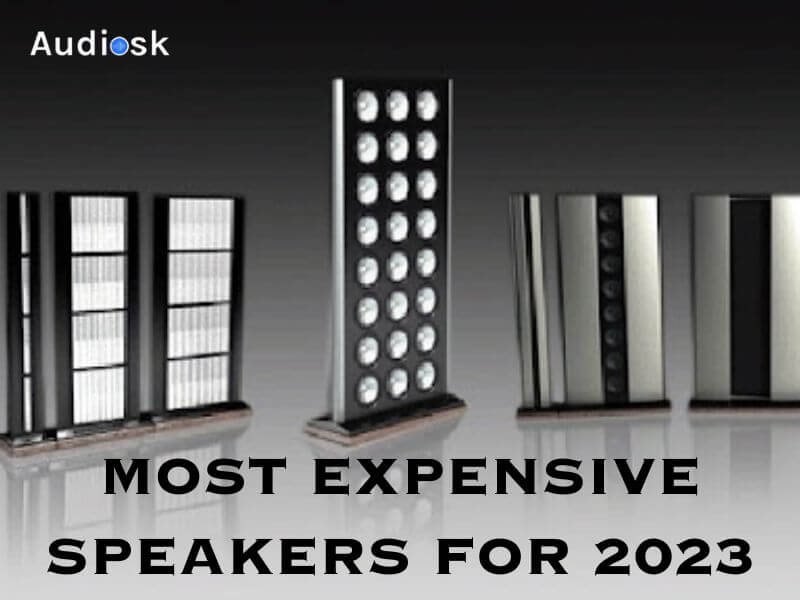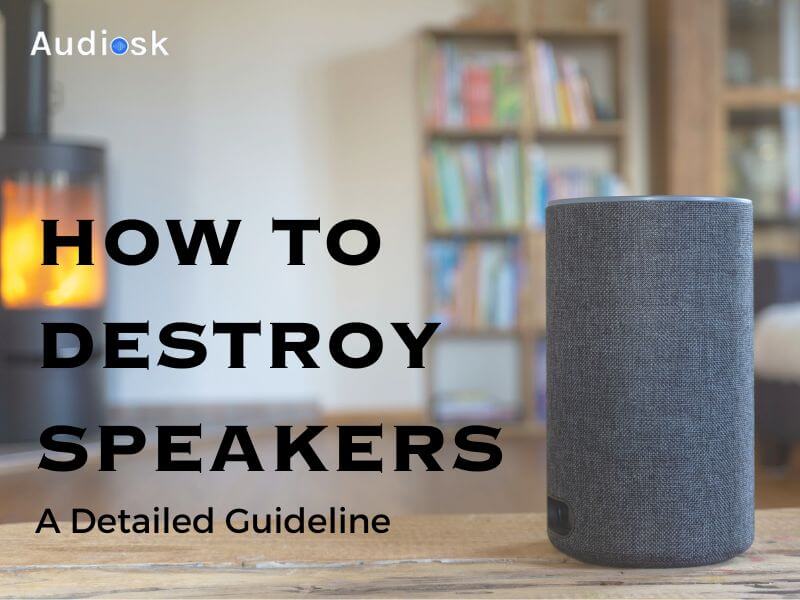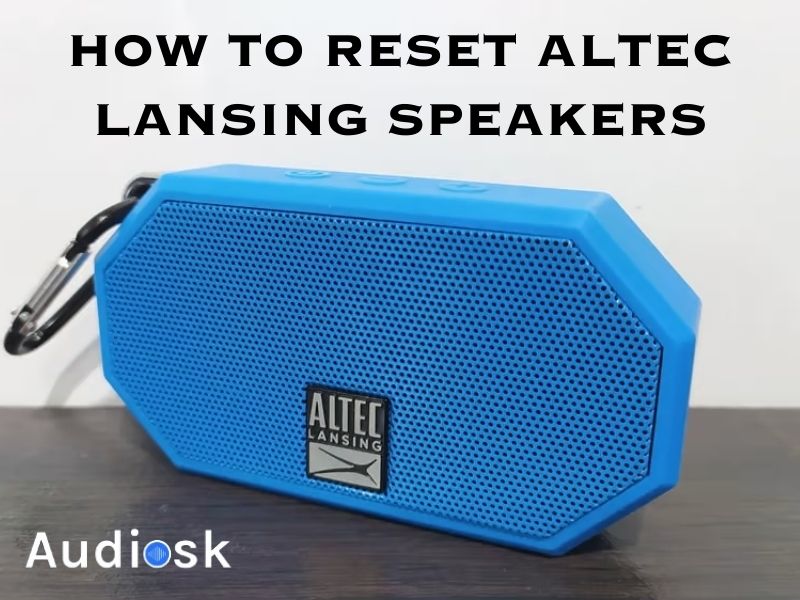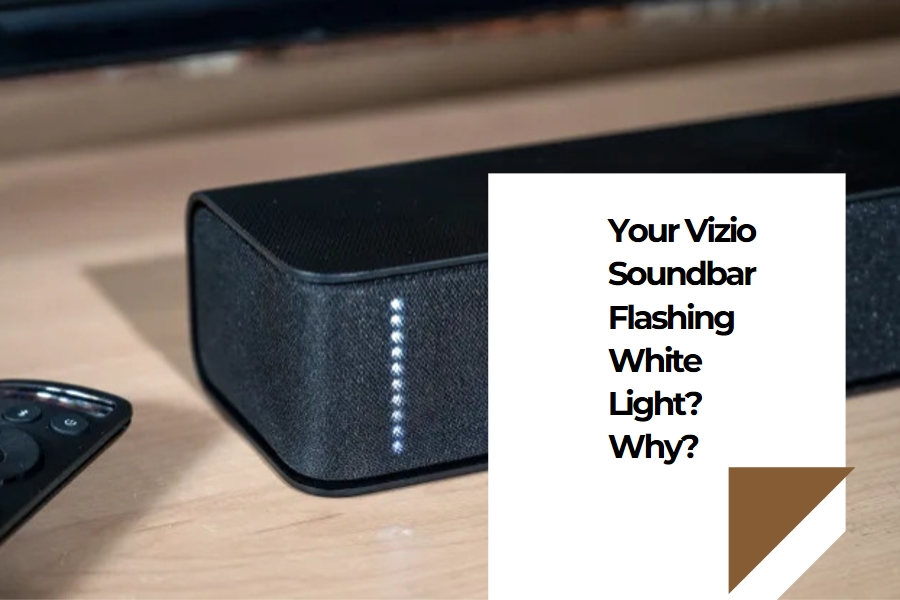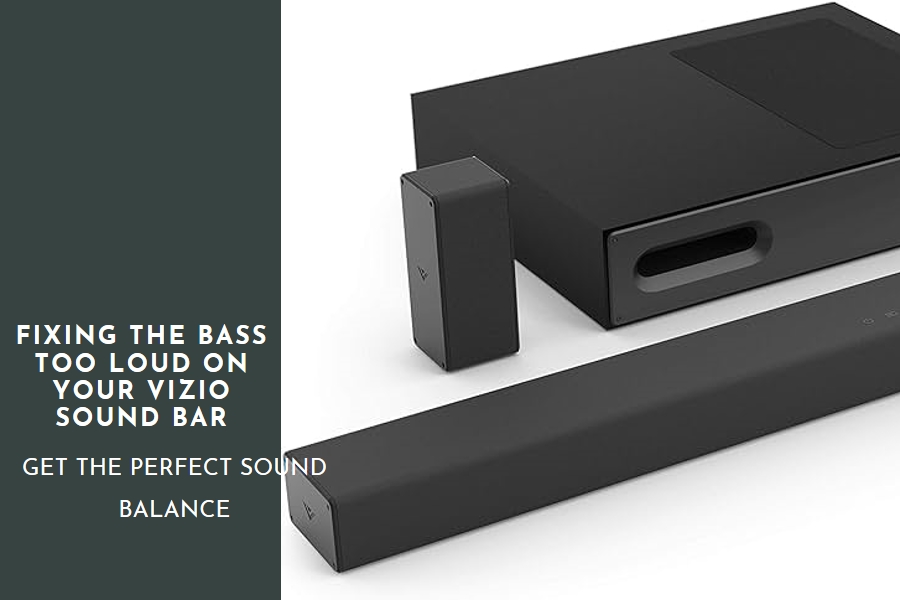At audiosk, In our exploration of sound systems, we often bump into challenges such as the moment a subwoofer begins playing and fades away. Besides ruining our listening process, this problem raises a concern on whether our equipment is in order.
Now, let’s see why does my subwoofer cut in and out? What you should do about the bass that gets really loud.
The Reasons Subwoofers Keep Cutting Out at High Volumes?
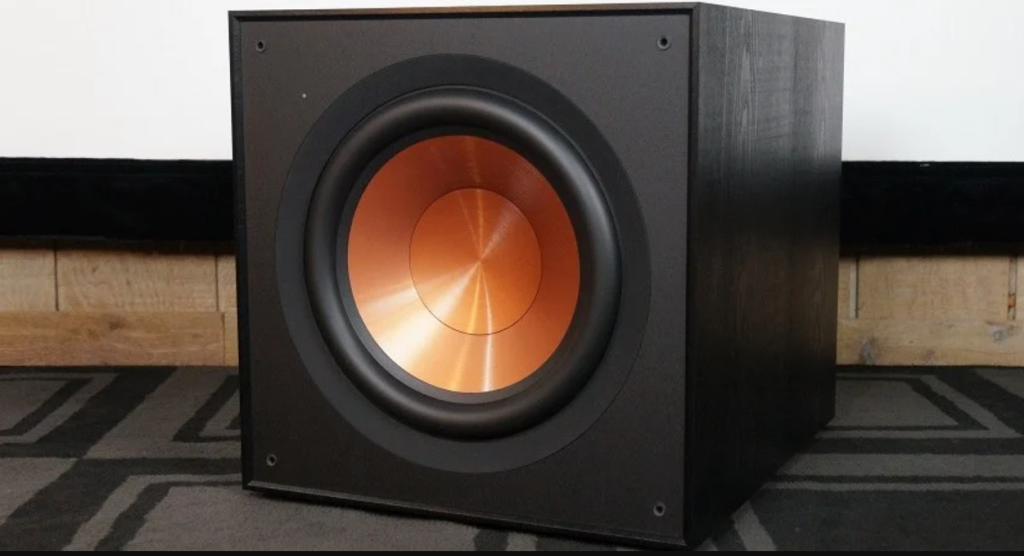
Great, let’s dive into the reasons why your subwoofer might not work right, whether it’s in your car or part of your home theater. We’ll also share how to fix these issues.
1. An issue with the amplifier
If you use an amplifier frequently or place it next to something hot, it can become too hot. Amp may turn off to protect things like a huge speaker and power part if it heats up.
Furthermore, if you wire it wrongly, and if the power part does not flow properly together with the insufficient air movement and bad casing, then it could get too hot. An amp can break down or even cause a fire if it does not remain cool, and this is because it can make other parts work extra hard due to all the heat.
Solution:
You need to ensure that the amplifier is ventilated properly and that all connect wires are in order before operation.
In addition, more cooling units may be necessary. Moreover, ensure that you plug in your big speaker and make sure the amp and speaker are matched regarding power handling.
2. Blown Subwoofer
The issue could be a broken big speaker. When something goes wrong with your big speaker, the cone which moves under pressure is overworked.
At normal sound levels, it would be impossible to detect its stoppage operation. However, when you turn the sound up high, the part of the cone that makes sound can move out of position, thus leading to it not produce any sound.
For instance, they can occur if you play music too loudly, play songs with too much bass sound, or they can occur if your speaker cannot handle how much sound loudness.
Solution:
You can try to replace the broken component of the speaker, or reduce the volume level. Prevent this from happening again by not overusing your big speaker.
3. Impedance Mismatch
The biggest speaker always turns off due to a poor impedance or power handling. This occurs when the big speaker’s power handling is lower than the power amplifier sends into it. In this case, the speaker will have so much power that it may go off or even break.
Solution:
However, in order to prevent this kind of thing, you need to ensure that your big speaker and amplifier should handle power similarly and wire them properly.
I can also answer your questions in the comments section below if I could guide you on how to do it better. Alternatively, you can seek help from an audio professional.
4. Bad Ground
Bad grounding may lead to instances when your amplifier or big speaker turns off itself. Such an occurrence arises if electrical buzz, radio waves, or any other noises interfere with it. The multiple connection of a ground wire constitutes a ground loop.
The current does not go in a straight direction but in a round about it thus creating the cross talk. There will also be a poor sound quality if you do not have good insulation on your speaker wires. The sound waves may get mixed up and cancel each other leading to distorted sound. That can switch off your big speaker.
However, when installing a subwoofer to a factory stereo, ensure compatibility and use correct wiring for a secure connection. If the subwoofer cuts in and out, indicating distortion, check for loose connections or wiring issues. Adjust the stereo’s settings to suit the subwoofer’s needs. Proper setup and troubleshooting can prevent distortion and integrate the subwoofer smoothly with your factory stereo.
Solution:
You need to ensure that you properly cover your wires and that all connections from your system parts and ground point are very tight. Lastly, ensure the other end attaches to a safe place that does not have any other power sources or rust near.
5. The volume of the amp is too much.
Over use of the amplifier can make the sound distorted. Clipping occurs during this problem and refers to the occurrence of a bad sound due to the cut-off at the top of the sound wave. This may switch your big speaker off. Additionally, high-output amplifiers can also do clipping when playing very loud sounds.
In fact, you can even break speakers and big speakers because when you use more power than it requires it becomes hot at the power part.
Solution:
In order to avoid this problem, ensure that your car sound system or home theater is sufficiently powerful, without necessarily raising the volume excessively.
More still you can set a limit on how much to increase your amp to prevent the large speaker from blowing off. Finally, if the problems persist, think about a better amplifier that can handle more power.
6. Faulty Connections
Although it may seem inconceivable to your big speaker to turn off, yes, there are some problems with bad connections. The reason behind a shut down high volume signal is that some of the cables might be loose, broken, or bad quality.
Another thing is that if you add a lot of speakers to one amplifier, you might end up with clipped sound, which means that even the strongest speaker has no sound.
Solution:
You need to make sure all connections are tight, using good wires and compatible with your existing audio equipment. Furthermore, decrease the number of speakers connected to one amplifier or consider buying new equipment.
7. Severe Voltage Drop
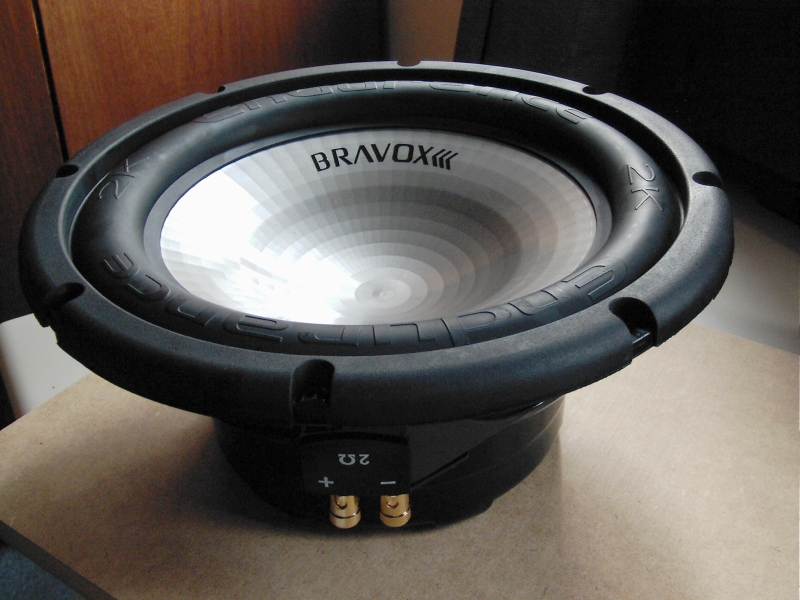
If your big speaker keeps turning off, it might be because of a voltage drop, and this can happen for two reasons:
There is a high probability of your amplifier using more power than the batteries can provide. This results in the power system dropping below what is required for the running of the large speaker.
The other reason may be something as simple as short-circuiting or loosely connected internal or external components.
This is basically a problem that occurs when a circuit carries more current than what is its capacity to do. The voltage drops with low power. Amplifiers are equipped with protection circuits which react when the noise gets too low and will turn off such amplifiers if it does so.
Solution:
Ensure all your connections are tight, and none of the wires was crushed or trapped after they are in. You therefore need to check any loose connections in the wire connecting your amplifier to the battery terminal block.
Moreover, consider adding a fuse just before the main wire leads to your amp. The use of thicker wires is also helpful.
8. Low-Quality Audio Source
For example, mp3s or music from the streaming services are not so clear while using the original audio source. With deep notes on these not-so-good recordings, there is a lot of disturbance that makes speaker amplifiers require more power.
Your amplifier will also turn off temporarily if you try to give it too much sound all at once. It will switch itself on after it has cooled. Just as when the sound is too strong, the amplifier will stop until it has cooled down and then turn back on.
Furthermore, To fix subwoofer distortion, especially when your subwoofer cuts in and out, it’s essential to diagnose and address the underlying causes. This issue often arises from improper settings, loose connections, or overloading the subwoofer. Start by checking all connections to ensure they’re tight and secure.
Adjust the subwoofer’s settings, particularly the gain and crossover, to levels that your system can handle. Also, ensure the subwoofer isn’t receiving more power than it’s designed for, as this can cause it to cut in and out. Properly configuring and maintaining your subwoofer can significantly reduce distortion and improve its overall performance.
Solution:
Therefore, only use high quality audio sources. They have a wider range of sound and less distortion, so your speakers will not be hit by poor sound all through. This aids in turning them off and hence, stopping them.
9. Insufficient power source
A power shortfall is another common factor. With a small battery or alternator, your sub’s may not receive sufficient power when there’s a bass drop. This may cause the subwoofer to cease functioning completely, or make far less bass as expected.
Solution:
Enough power is needed so that you can solve such a problem. You might have to upgrade the big three: the alternator, battery, and supply line.
10. Problem with alternator
Your big speaker could just shut off if you have a faulty alternator and you are playing heavy bass. An alternator that cannot provide enough power for all the car’s electrical systems is a sign of a bad alternator.
Therefore, when there is a high bass, the power may decline and in turn, cause the huge speaker to cease functioning.
Solution:
It’s simple, you just have to replace the alternator.
11. Bad fuse/holder
With my experience, If your subwoofer suddenly stops working, it might be a problem with the fuse or fuse holder.
It is important as a fuse protects your electrical system. It is essentially a switch that breaks the circuit once the current through it increases beyond its threshold level, thus preventing surge damage.
The fuse should be firmly supported in the fuse holder. It is a device that comprises two terminal points through which a fuse connects and is mostly made out of metal or plastic.
Solution:
Therefore, as the sound system experts, we suggest checking if there is any damage or corrosion at the fuse and holder.
Put in a new fuse and holder since the old ones became blown. They often fix general audio equipment problems.
12. Subwoofer is defective
Alternatively, it could be the subwoofer that is faulty, and may thus require servicing or replacement.
Such an incident may take place when the subwoofer has been damaged or it is not operating correctly. We have a lot of experience with faulty subwoofers and telltale signs of it are visible. It could come out as a crackle, or in some cases, not make a sound.
We’ve had to deal with this many times and it is necessary to understand this possibility, if you want to make sure that your sound system will last and perform well, through time.
Solution:
A new one may be a choice that you can think of.
13. Power Supply
The lack of power is often cited as the cause for a subwoofer cutting out during high volumes. In case of minimal current on the subwoofer, it could fail to generate any sound. This may also result in insufficient ground wiring, or problems relating to amp circuitry itself. Other common causes include:
- Worn-Out Components: This might involve parts such as resistors or capacitors that may fail after a while.
- Loose Connections: These can disrupt sound output.
- Electrical Interference: However, other devices like computer monitors and TV screens can impede the operation of the subwoofer.
- Aged Wiring: There might also be a problem with old or heat – damaged wiring.
- Normal Wear and Tear: The system’s performance is likely to be affected by regular use.
It is imperative to know these problems in order for you to get a properly maintained sound system.
Solution:
Therefore, we suggest one to examine all the connections of components on audio systems for addressing power supply issues and utilize instruments such as a multimeter.
Identifying the problem usually calls for repairs or replacing of the affected equipment. As such, your audio system is able to operate at its best.
Why Subwoofer Cutting Out Home Theater?
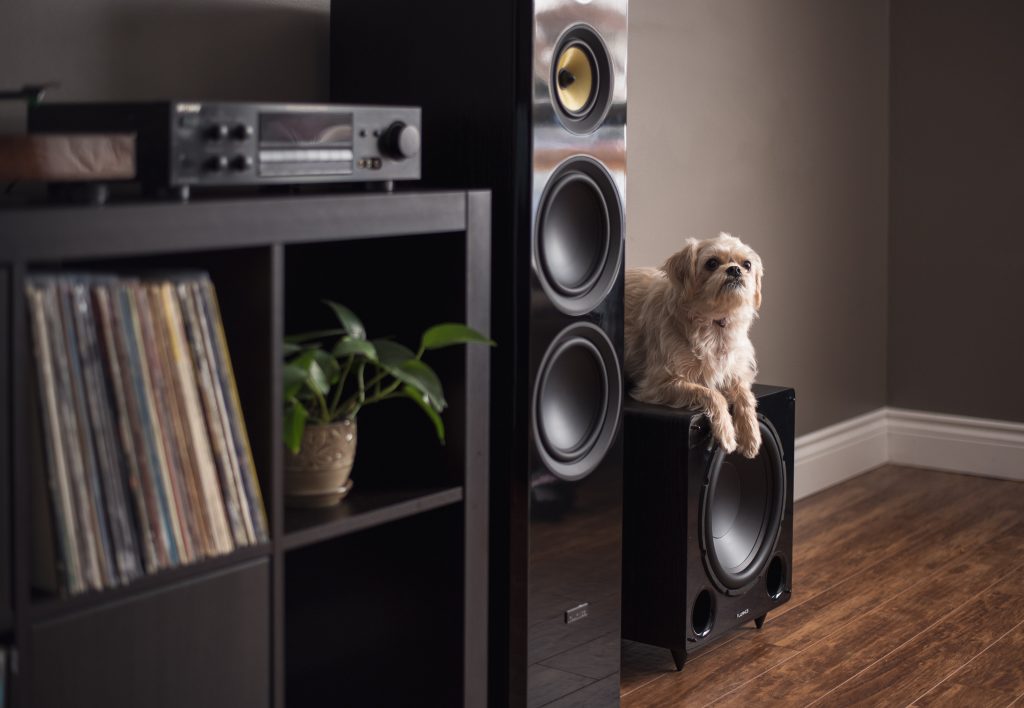
We are experienced audio enthusiasts who have had to deal with different situations when it comes to home theater subwoofers. On with the problem and its remedy.
Being seasoned audio enthusiasts, there are situations when a home theater’s subwoofer encounters this problem. Now, let’s delve into why it happens and what we can do about it.
1. Power Supply Issues
Cause: Your subwoofer might cut out in low power supply, especially at high volumes.
Solution: Verify that you have connected your subwoofer to a proper power outlet and make sure there are no issues related to power.
2. Wiring Problems
Cause: The audio signal may be disrupted by loose or damaged wires.
Solution: Ensure regular inspection of all connections and connected cords. If anything is worn out, replace it with new ones.
3. Overheating
Cause: Prolonged use of subwoofers may lead to overheating.
Solution: Always place your subwoofer in a ventilated area and ensure that no object covers it up.
4. Compatibility and Settings
Cause: improper setup of your home theater, or incompatibility problems.
Solution: Make sure that your audio receiver is compatible with the subwoofer whose setting you should check out.
We have encountered one customer who had a subwoofer that kept off in action filled movies. A casual look at it showed us it was just about a loose connection. It helped in tightening the connection and resolving the problem.
Tips for maintaining your subwoofer
- Regular Inspection: Ensure that your subwoofer is properly connected and maintained.
- Adequate Ventilation: Ensure that there is enough room for ventilation around the sub woofer. Transposed from AI written to human written
- Correct Settings: Ensure that the settings on the receiver correspond to those of the subwoofer as well.
This is often an irritating factor for the case of a subwoofer that comes in a theater at home. However, is easy to control.
Understanding why problems arise and how they are solved will ultimately help you achieve good results in terms of the quality sound coming out from your home theater device.
Conclusion
Subwoofer cut-ins come about due to a number of reasons such as inadequate power supply, improper cabling, overheating and the like or it could be that there is an incompatibility issue. For example these would include: tightening up loose connections or removing blockages to ensure good airflows and adjusting the set points such as flow or temperature.
At audiosk, Our article answer the question ” why does my subwoofer cut in and out? “. One has to also note that sometimes other components like fuses and wires need replacement, and regular maintenance may be necessary. One should know these things if one is going to get a good sound experience through their subwoofers.


